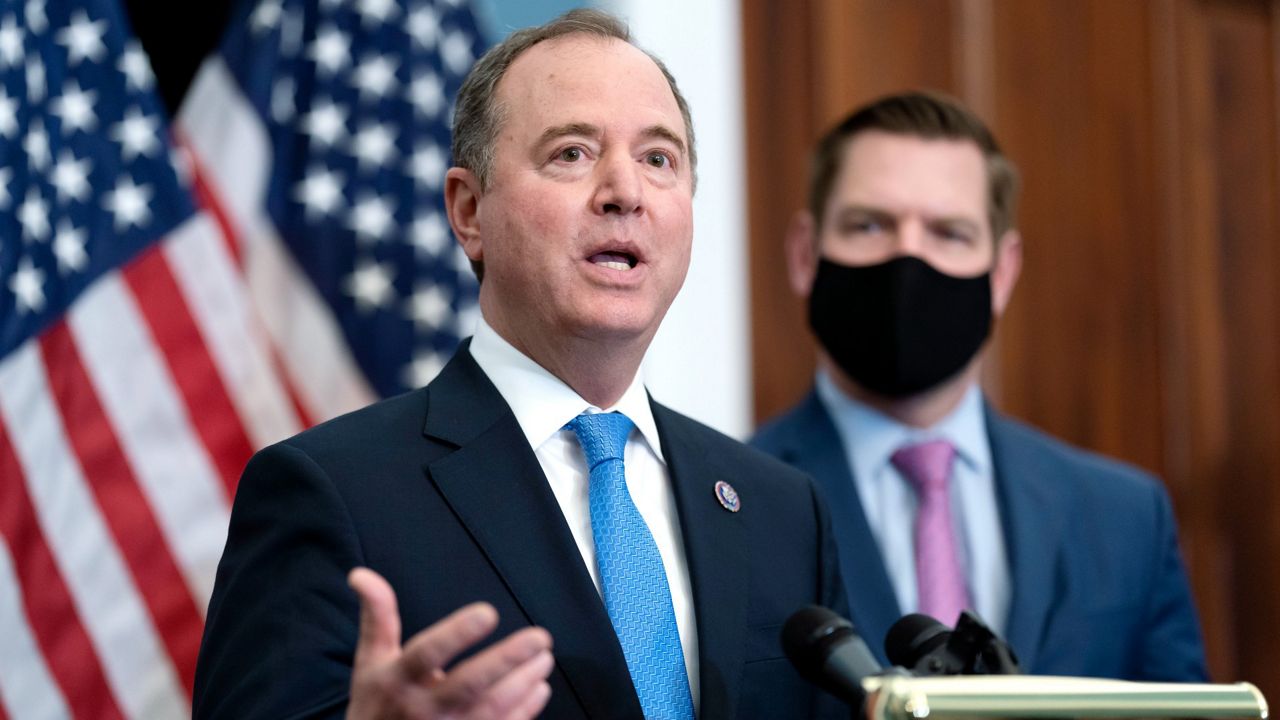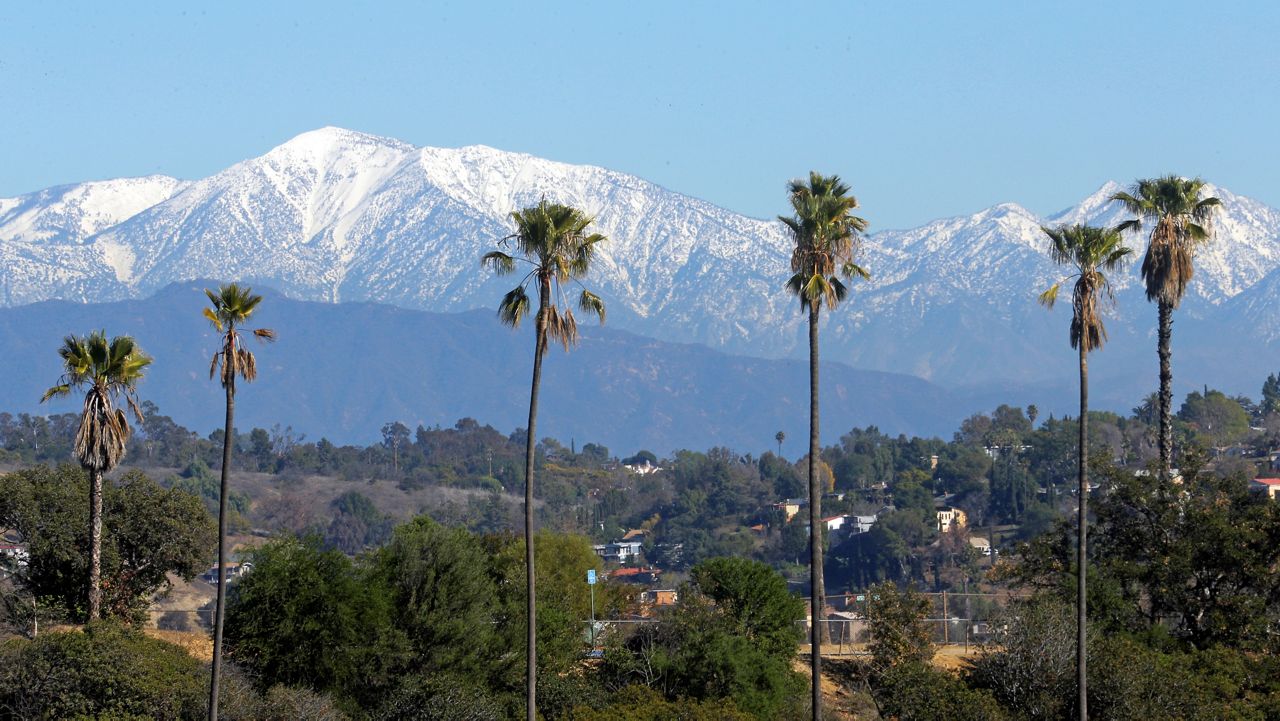CASTAIC, Calif. — When the morning run is over, it's time for the current class of recruits at Los Angeles County Fire's Del Valle Regional Training Center to assemble and receive instructions.
That's when Capt. Carlo Loffredo rings a loud, brass bell and the recruits pour in from all directions, landing in perfect lines. The youngest among them is 21 – too young to remember 9/11 or what it was like before the terrorist attacks.
Loffredo remembers.
As a 29-year veteran of the LACFD, he knows how quickly an ordinary day can suddenly change. But nothing could have prepared him for the call from his dad on that Tuesday morning 20 years ago.
"[He] said turn on the news and see what's happening on the news," Loffredo remembered. "A plane had hit the twin towers."
A few days later, he was on a plane himself, heading for lower Manhattan. This was not a work trip. LA County Fire was not sending anyone to assist at the site, so Loffredo and three friends took matters into their own hands – buying tickets with their own money and using their own time off.
"And so we basically kind of went like we were going on a vacation, and left to go help out in any way that we could," he explained.
Twenty years later, he doesn't have to try hard to remember that time as it's all still present in a way. He keeps a photo album filled with images of the rubble and a collection of programs and plans. There are friends he made on the East Coast, and he still keeps in touch with them.
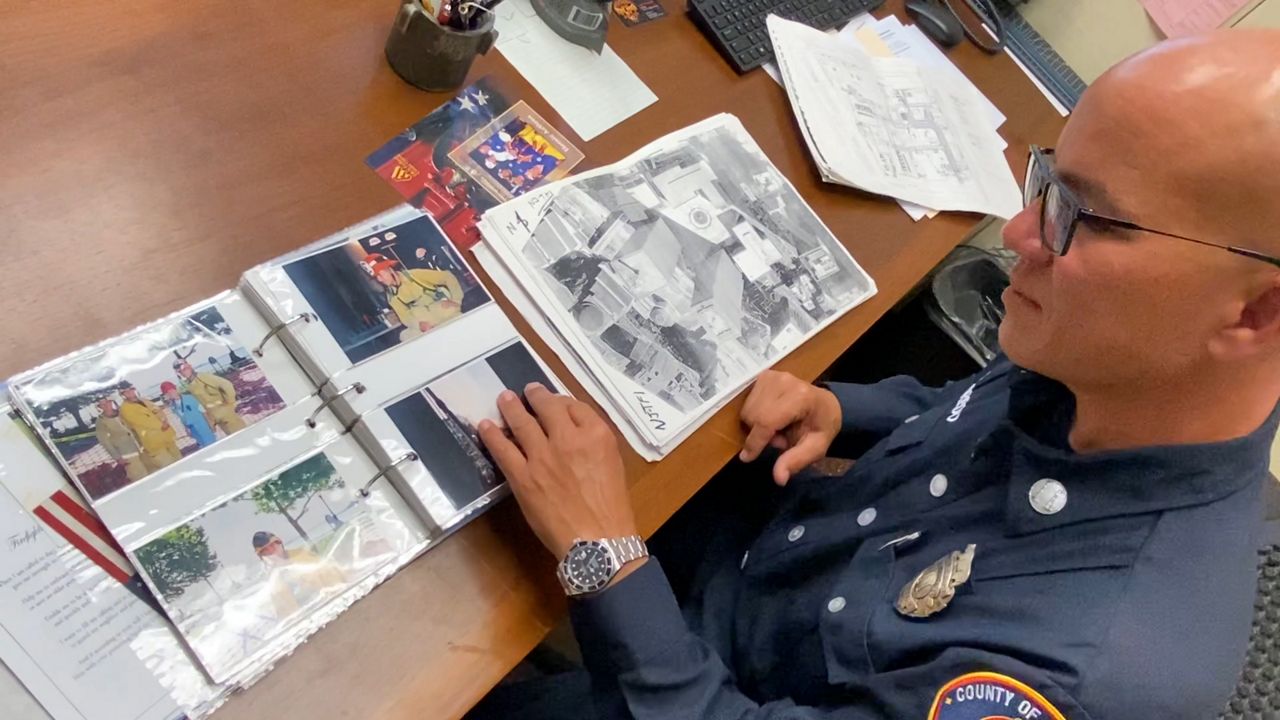
Then there are the vivid memories of long days and nights working on the pile, 12-14 hour shifts for about seven days.
"It's one thing to look at it on TV," Loffredo said, "and then it's a whole other aspect to actually be there and see the devastation and destruction that was down there."
It took two days for Loffredo and his cohorts to access the site, but they immediately began working once they did. On day one, he remembers helping recover the body of a fallen firefighter.
"We dug down to where…his remains that we found and then basically they would move us to the side. And then the FDNY firefighters would come in," he recalled, still able to detail every step. "Then they would recover the remains, everyone would come to attention, it would be all flag draped, and then carry them out. And we'd punch back in and go back to work again."
It's a scene, he says, that played out every day, sometimes several times a day, as they shifted from rescue to recovery, a tough call in any operation. "Nobody ever wants to go to recovery," he said.
Loffredo thinks his time spent at ground zero changed him. He remembers the smell that clung to his clothes even after he left the site. He remembers how everyone worked as a unit, regardless of where they came from or how many years they had on the job.
"There was never any rank," he said. "Everybody shared the same goal and really, everybody was equal rank on the pile."
Looking through his thick photo album, he's proud of the younger version of himself who dropped everything and went to help. Each year as the anniversary comes around, Loffredo, who trains future first responders, takes time to reflect on a past that taught him how to live in the present.
"Anything can happen," he said. "Just live life to the fullest every day."
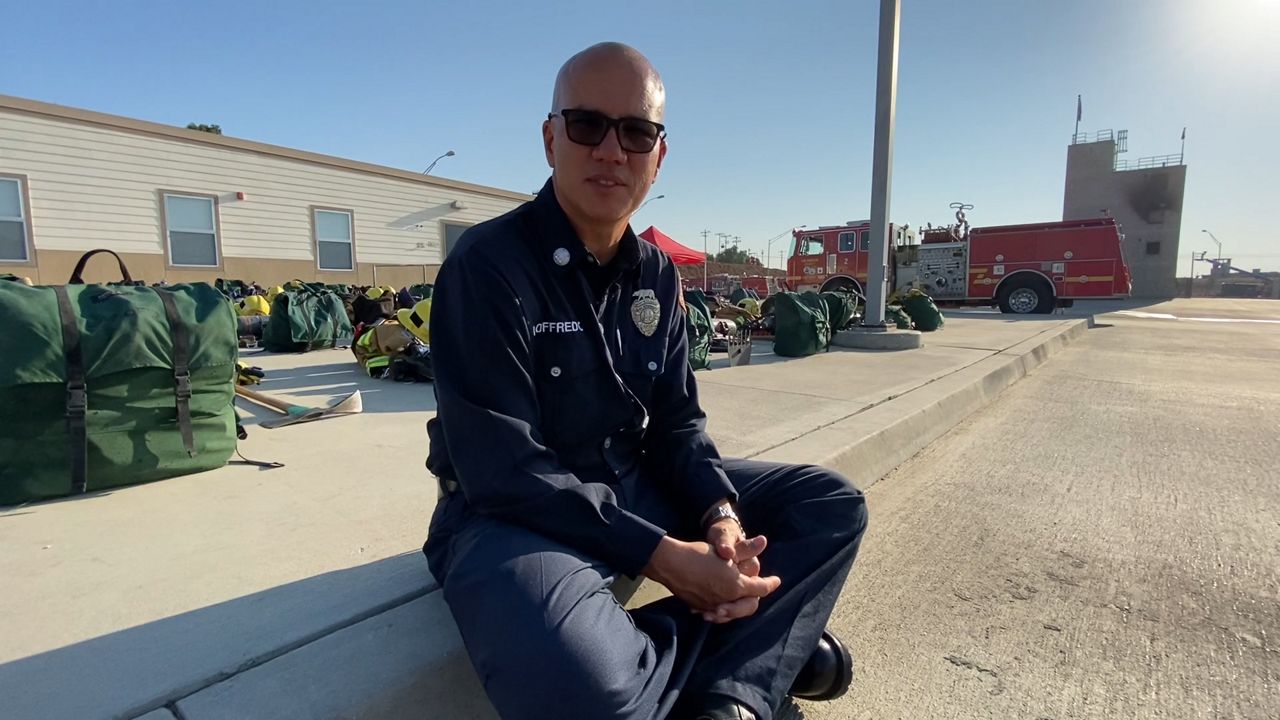








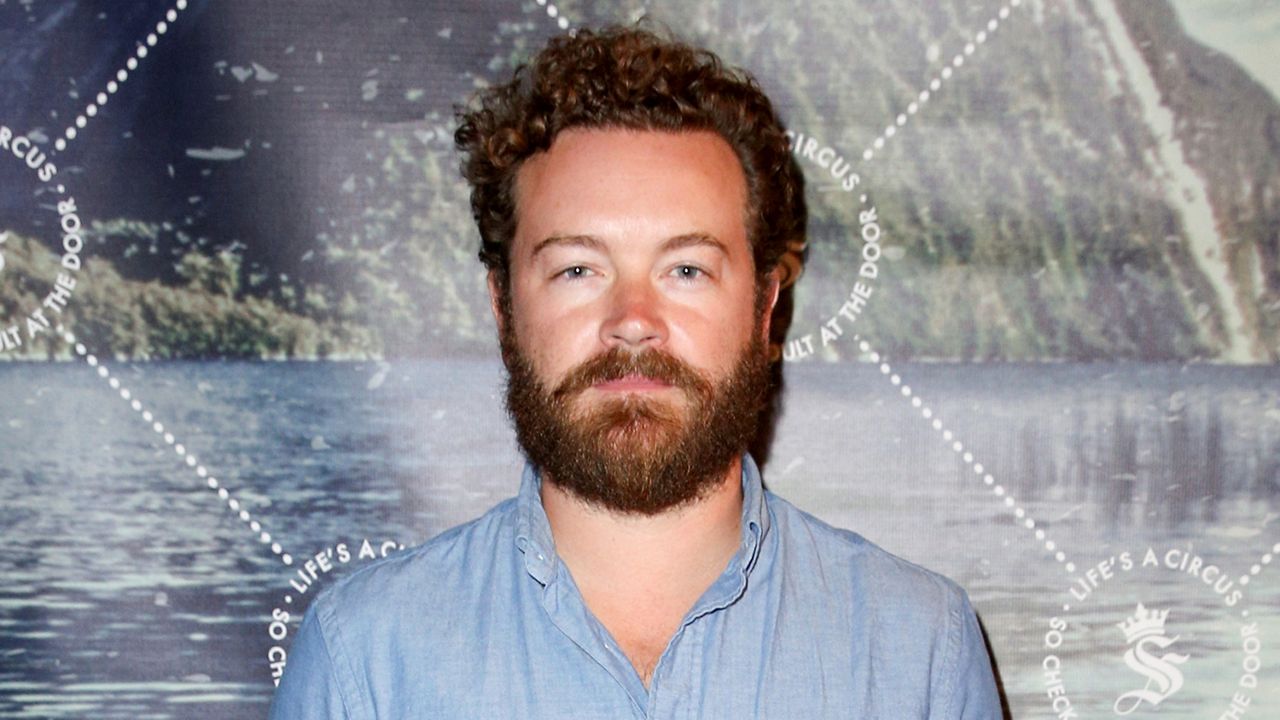
)
